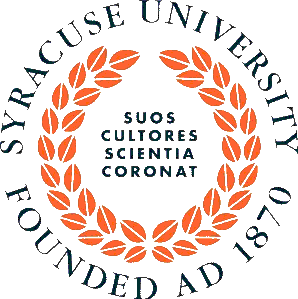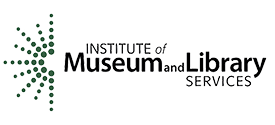Introduction
School Librarians Motivating and Supporting Young Innovators

Center for Digital Literacy
School of Information Studies
Syracuse University
Funded by a 2015 National Leadership Grant
from the Institute of Museum & Library Services




Welcome to the Mentoring Young Innovators Training Site
Mentoring is considered an essential leadership skill. Just as teaching another is considered the highest form of learning, having the skills to mentor another person demonstrates the highest capacity to lead. As a mentor to aspiring young innovators, you have the opportunity to provide the students in your schools with the knowledge, skills and confidence they need to pursue their aspirations.
This mentoring training focuses on mentoring young innovators in elementary and middle schools and is part of a national project entitled School Libraries as Innovation Spaces, School Librarians as Innovation Mentors: Stimulating Students' Curiosity, Inquiry and Innovative Thinking [better known as "The Young Innovators Project (YIP)]. YIP seeks to support librarians who want to transform their school libraries into innovation spaces and create programs and services that encourage and support innovative thinking and creativity in young students. This project is funded by a National Leadership Grant from the Institute of Museum & Library Services (IMLS) to the Center for Digital Literacy in the School of Information Studies at Syracuse University.
We can find many examples of child-created innovations, some of which are considered ubiquitous in our everyday lives. For example, as a 14-year-old Philo Farnsworth invented the first electronic television and Chester Greenwood, age 15, invented ear muffs. When he was only 15, Louis Braille invented his tactile reading/writing system, opening up a world of information for people with visual disabilities. Eleven-year old Frank Epperson created and patented the Popsicle. [For more examples of young innovation and entrepreneurship, check out the website for Warren Buffett's Secret Millionaire Club at this link: http://www.smckids.com/.]
Young people who are innovative are typically imaginative, curious, creative, and intrinsically motivated. They love to experiment, explore and tinker, sometimes alone and other times collaboratively. But not all innovative young people know how to direct and express those qualities. And not all children have the high level inquiry skills required to be successful young innovators. In addition, many highly creative and innovative children lack mentors at home as well as in school and the type of support and encouragement all young innovators need to be successful.
In his book, Creating Innovators: The Making of Young People Who Will Change the World (Scribner, 2012), Tony Wagner explains that children that lack this support and guidance can be found in everywhere, from high needs to affluent school districts, resulting in the world's loss of untold creative young inventors and entrepreneurs who might be the ones who would discover cures for the world's deadly diseases, create the next generation of technology, or provide the leadership needed to resolve conflict.
Training Format
Before you begin, we'd like to tell you something about how the training is organized and designed. This training begins with a pre-test that allows you to assess your knowledge of mentoring processes and skills before you begin the training content modules.
The training content is divided into the following six learning modules:
Module 1: The Promise and Potential of Mentoring
Module 2: What is Mentoring?
Module 3: The Predictable Cycle of Mentoring
Module 4: Qualities of a Mentor
Module 5: Mentoring Young Innovators Through Learning & Motivation
Module 6: Mentoring Tips
Each training module contains information, exercises, games, quizzes, videos, photos, readings for young innovators, and more---all relevant to school librarians and other educators serving as mentors. While our mentoring examples focus on school librarians and the mentoring needs of aspiring young inventors and entrepreneurs in the elementary and middle school grades, we believe that this training is appropriate and adaptable to educators of young people of all ages.
As you go through the training, you may wish to maintain a journal, using our template to document your mentoring experiences and save your ideas. You'll also find a collection of Readings that include both training references and additional, related readings for enrichment.
The training ends with a post-test which you can compare to your pre-test to determine how well you have learned the training content. Items for all module quizzes and both the pre- and post-test will be randomly generated so, if you decide to retake a test or quiz, you will find a different set of questions each time. Your pre-test, post-test and quiz scores will be automatically saved to your personal space on this site so that you can access them at any time.
The Innovation Destination
The Innovation Destination was designed and evaluated by a team from the Center for Digital Literacy at the School of Information Studies, Syracuse University and developed by Data Momentum Inc, in partnership with the Connecticut Invention Convention, By Kids for Kids, New York On Tech, and over 70 school librarians and young innovators.
This site has been serving the youth invention community from 2015 - present.




